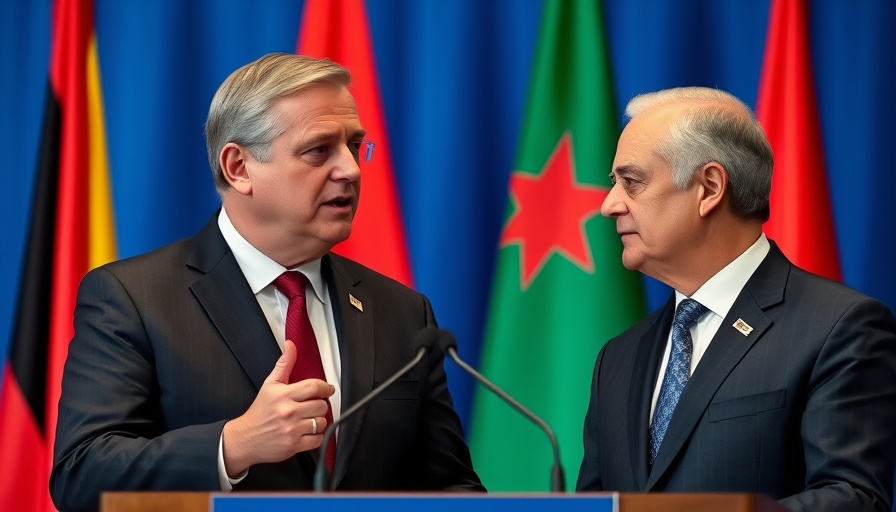
Brussels and Rabat: Diplomatic Ties Strengthened through Judicial Cooperation
In a significant move showcasing evolving diplomatic relations, Belgium is advancing its cooperation with Morocco, particularly in the judicial domain. This shift, highlighted by recent high-level discussions in Rabat, suggests a potential realignment on the contentious issue of Western Sahara. With a renewed focus on a bilateral treaty aimed at the repatriation of Moroccan prisoners, this initiative indicates Belgium's commitment to understanding and addressing the complexities surrounding this ongoing territorial dispute.
The Impact of Judicial Cooperation on Regional Stability
Judicial cooperation between nations often serves as a foundation for broader diplomatic relationships and peacekeeping efforts. With Morocco's strategic location and status as a bridge between Europe and Africa, increased collaboration could lead to enhanced stability in the region. By revising legal frameworks and cooperation agreements, both countries may not only curb issues related to migration and security but also foster economic growth through improved trade and investment prospects.
Navigating the Western Sahara Conflict
The Western Sahara remains a divisive issue that has implications beyond Morocco and Algeria. Discussions around autonomy plans have gained traction, accentuating the need for open dialogues among regional powers. As evidenced by Belgium's gradual pivot, meaningful negotiations could pave the way for resolutions that honor the rights and aspirations of the local populace while addressing broader geopolitical interests.
Relevance to Pan-African Goals and Decolonization Strategies
This diplomatic movement reflects wider continental trends towards decolonization and the empowerment of African nations on the global stage. As Morocco interacts with Belgium, the potential for fostering frameworks that prioritize democratic governance and human rights becomes a focal point. The discussions not only signify a bilateral engagement but contribute to the Pan-African dialogue aimed at ensuring sovereignty and dignity for all African communities.
Looking Ahead: Opportunities for Economic Growth and Development
The judicial cooperation initiative could be a springboard for Morocco to enhance its economic landscape. With a focus on trade, agriculture, and renewable energy, the partnership can attract foreign investments that bolster Morocco's standing within the African Continental Free Trade Area (AfCFTA). This kind of economic integration not only promotes sustainable development but also works towards alleviating poverty, creating jobs, and securing a better future for Moroccan youth.
Conclusion and Call to Action
As Morocco and Belgium deepen their ties through judicial cooperation, the implications are extensive, advocating for both regional stability and economic prosperity. Observers and stakeholders should monitor these developments closely—supporting dialogue and action that promotes peace, governance, and the rights of individuals will be crucial in this evolving landscape. The betterment of relations between nations is not just a political maneuver but a reflection of shared aspirations for a brighter, inclusive future.
We encourage readers to stay informed about these developments and engage in discussions that promote understanding and support collaborative efforts towards peace, democracy, and sustainable development across Africa.
 Add Row
Add Row  Add
Add 




Write A Comment